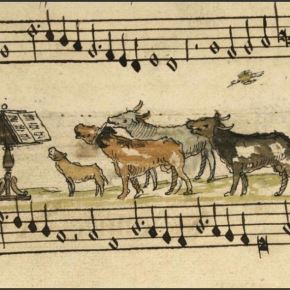In Kenya, camels are a very popular animal to keep as livestock. There’s value in their meat and milk products and as a result, there are now over three million camels in the country. But there is a danger that the people who come into contact with camels, and their products, face getting the Middle East Respiratory Syndrome (MERS). MERS is a disease in people caused by a coronavirus (MERS-CoV) which was first identified in Saudia Arabia in 2012. Continue reading
Category Archives: Camels
Thursday Links (September 2019)
A monthly round-up of recent articles, blog postings and tweets about livestock, aid and other topics that may be of interest to International Livestock Research Institute (ILRI) staff and partners, compiled by David Aronson. News out of Africa An article in The Nation says that supermarkets in nine Kenyan counties tested still stock and sell … Continue reading
Thursday links (June 2019)
A monthly round-up of recent articles, blog postings and tweets about livestock, aid and other topics that may be of interest to ILRI staff and partners, compiled by David Aronson. Continue reading
Thursday links (May 2019)
A monthly round-up of recent articles, blog postings and tweets about livestock, aid and other topics that may be of interest to ILRI staff and partners, compiled by David Aronson. Continue reading
Dairy: A tool to fight poverty—An interview with IFCN’s Torsten Hemme
Having scanned the scientific literature (100 journal articles) on the impact of milk production on reducing poverty, Torsten Hemme, managing director of the IFCN (International Farm Comparison Network) Dairy Research Center, in Kiel, Germany, says that dairy is improving lives in multiple ways. Continue reading
Is promoting vegetarianism for all the world’s people a form of colonialism? just Euro-centric?
The debate over whether a vegetarian diet is better for the planet is top of mind for many as news of water scarcity, climate change, and deforestation seem to worsen by the day. Sarah Taber, a US-based agricultural scientist added another angle to the debate earlier this month when she laid out the argument that calling vegetarianism and/or veganism a universally ‘better’ diet is a form of colonialist thinking. Continue reading
Northern Kenya-southern Ethiopia dryland livestock traders gathered in Marsabit for better livestock trade and market links
Enthusiastic traders from several counties in northern Kenya and from across the border in Ethiopia joined a livestock trade facilitation forum in Marsabit, Kenya on May 9. By close of business, participating livestock buyers and sellers signed contracts for a total of 5,373 livestock at a value of $406,774. Continue reading
As another drought bites the Horn, 12 million face food shortages in Kenya, Ethiopia and Somalia
With as little as one-quarter of expected rainfall received, widespread drought conditions in the Horn of Africa have intensified since the failure of the October–December rains, FAO said. Areas of greatest concern cover much of Somalia, northeast and coastal Kenya, southeast Ethiopia as well as the Afar region still to recover from El Niño induced drought of 2015/16, and South Sudan, which faces a serious food crisis due to protracted insecurity. Continue reading
First non-travel-associated MERS in Africa–Researchers report past MERS-CoV infections in two Kenyans
Researchers at the Nairobi, Kenya-based International Livestock Research Institute (ILRI) and at the University of Bonn Medical Center in Germany have found evidence of MERS-CoV antibodies in archived blood samples from two of 1,122 Kenyan livestock handlers, collected between 2013 and 2014. Continue reading
African camels could hold a key to controlling the spread of the MERS virus
African camels could hold important clues to controlling the potential spread of a respiratory disease transmitted by the animals. For many years African camels have lived with the disease and the risk of it spreading to humans is still low. But more research is necessary to understand the disease better. This is even more important given the confirmation that the chains of transmission of the human Middle East Respiratory Syndrome Coronavirus (MERS-CoV) infection originated from contact with camels. Continue reading









